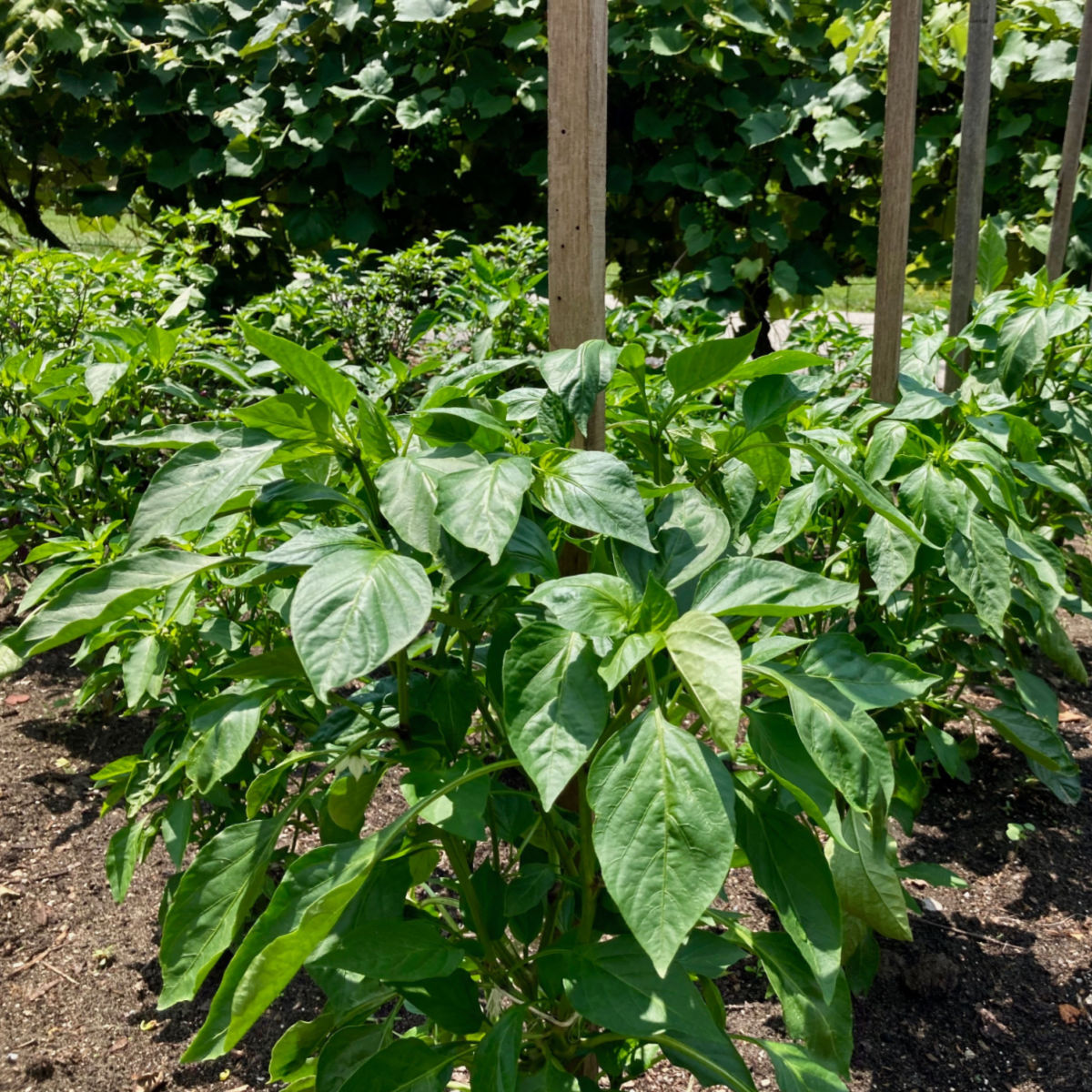Organic Vs. Synthetic Fertilizers: Which Is Best for Nurturing Healthy Pepper Plants?
In the realm of supporting healthy and balanced pepper plants, the option between synthetic and organic plant foods stands as a crucial choice with significant implications. While both options purpose to supply vital nutrients to support plant development, the subtleties of their influence on the dirt, plant wellness, and the atmosphere spark a discussion that mirrors throughout the gardening community. Recognizing the unique advantages and possible mistakes of each plant food type is essential for pepper farmers looking for to optimize their returns while preserving an eco-conscious and lasting approach.
Advantages of Organic Fertilizers
Organic plant foods offer a lasting and environmentally-friendly strategy to nourishing pepper plants, giving vital nutrients without the use of artificial chemicals. These natural fertilizers are acquired from natural sources such as compost, manure, bone dish, and algae, promoting dirt health and biodiversity. Unlike artificial fertilizers, organic alternatives release nutrients gradually, ensuring a consistent and well balanced supply for pepper plants to flourish.
One substantial benefit of organic plant foods is their ability to enhance dirt framework and water retention. By enhancing soil wellness, organic plant foods advertise advantageous microbial task, which assists in nutrient uptake by pepper plants. Additionally, organic plant foods lower the risk of chemical run-off, securing water resources from pollution and protecting the atmosphere.
In addition, organic fertilizers contribute to long-lasting dirt fertility by advertising the development of beneficial soil organisms. These microorganisms aid break down natural issue, launching nutrients in a kind that is easily accessible to pepper plants. best fertilizers for peppers. By promoting a healthy and balanced soil community, natural plant foods support lasting pepper farming techniques that profit both plants and the setting
Drawbacks of Synthetic Fertilizers
Synthetic fertilizers, in comparison to their organic counterparts, pose numerous downsides when utilized to nourish pepper plants, influencing both plant health and wellness and environmental sustainability. One significant disadvantage of synthetic plant foods is their tendency to leach nutrients from the dirt rapidly.
Moreover, the overuse of artificial fertilizers can add to water contamination. Excess fertilizers not soaked up by plants can remove right into water bodies, causing eutrophication, where algae blooms diminish oxygen levels in the water, damaging water life. Additionally, artificial fertilizers are typically stemmed from non-renewable resources, such as nonrenewable fuel sources, adding to carbon emissions and ecological deterioration throughout their production.
Nutrient Absorption Comparison
When contrasting synthetic and organic fertilizers in terms of nutrient absorption, organic plant foods have the advantage of providing a much more well balanced and slow-release resource of nutrients. Organic plant foods contain a variety of macro and micronutrients that are not only helpful for the plants yet additionally promote healthy soil microbial activity, which aids in nutrient uptake.
Furthermore, organic plant foods enhance soil framework and water retention ability, allowing pepper plants to gain access to nutrients a lot more successfully. This better dirt quality helps with root advancement, making it possible for far better nutrient absorption. Artificial fertilizers, although at first improving plant development because of their high nutrient concentrations, might impede long-lasting nutrient absorption by derogatory soil health and wellness gradually.
Ecological Influence Considerations

On the various other hand, synthetic plant foods, although usually check these guys out more instantly readily available and focused to plants, can have detrimental results on the atmosphere browse around this site otherwise used correctly (best fertilizers for peppers). Their manufacturing needs high power inputs, resulting in greenhouse gas exhausts and adding to climate modification. Moreover, the drainage of excess synthetic fertilizers can infect water resources, causing eutrophication and hurting water ecosystems.
Finest Plant Food Practices for Peppers
When feeding pepper plants, optimizing nutrient uptake and lessening ecological impact are essential factors to consider. To attain this, it is vital to follow finest plant food techniques customized to the specific needs of pepper plants. One important technique is to perform a soil examination prior to using any fertilizers. This test can figure out the pH degree of the dirt and recognize any kind of nutrient deficiencies, assisting you in picking the most suitable fertilizer formula.
One more crucial technique is to fertilize pepper plants at the correct time. Generally, peppers i loved this profit from getting plant food at planting and after that again when they start to blossom. Over-fertilizing can bring about nutrition discrepancies and hurt the plants, so it is important to follow advised application prices.
Furthermore, selecting a balanced fertilizer with an NPK proportion that fits pepper plants' demands is fundamental. Organic plant foods, such as garden compost or manure, can be outstanding choices as they launch nutrients gradually and improve dirt framework in time. However, artificial plant foods can offer a quick nutrient increase when required. Eventually, combining artificial and organic fertilizers deliberately can assist nurture healthy and balanced pepper plants while decreasing ecological effect.
Verdict

Organic plant foods offer a lasting and environmentally-friendly approach to nourishing pepper plants, giving important nutrients without the usage of artificial chemicals. Unlike synthetic fertilizers, organic alternatives release nutrients slowly, making sure a steady and balanced supply for pepper plants to thrive.
Synthetic fertilizers, in contrast to their natural equivalents, pose various disadvantages when utilized to nurture pepper plants, influencing both plant wellness and environmental sustainability. When comparing synthetic and organic fertilizers in terms of nutrient absorption, natural plant foods have the benefit of giving an extra well balanced and slow-release resource of nutrients.Furthermore, organic fertilizers enhance soil structure and water retention capability, enabling pepper plants to gain access to nutrients much more efficiently.